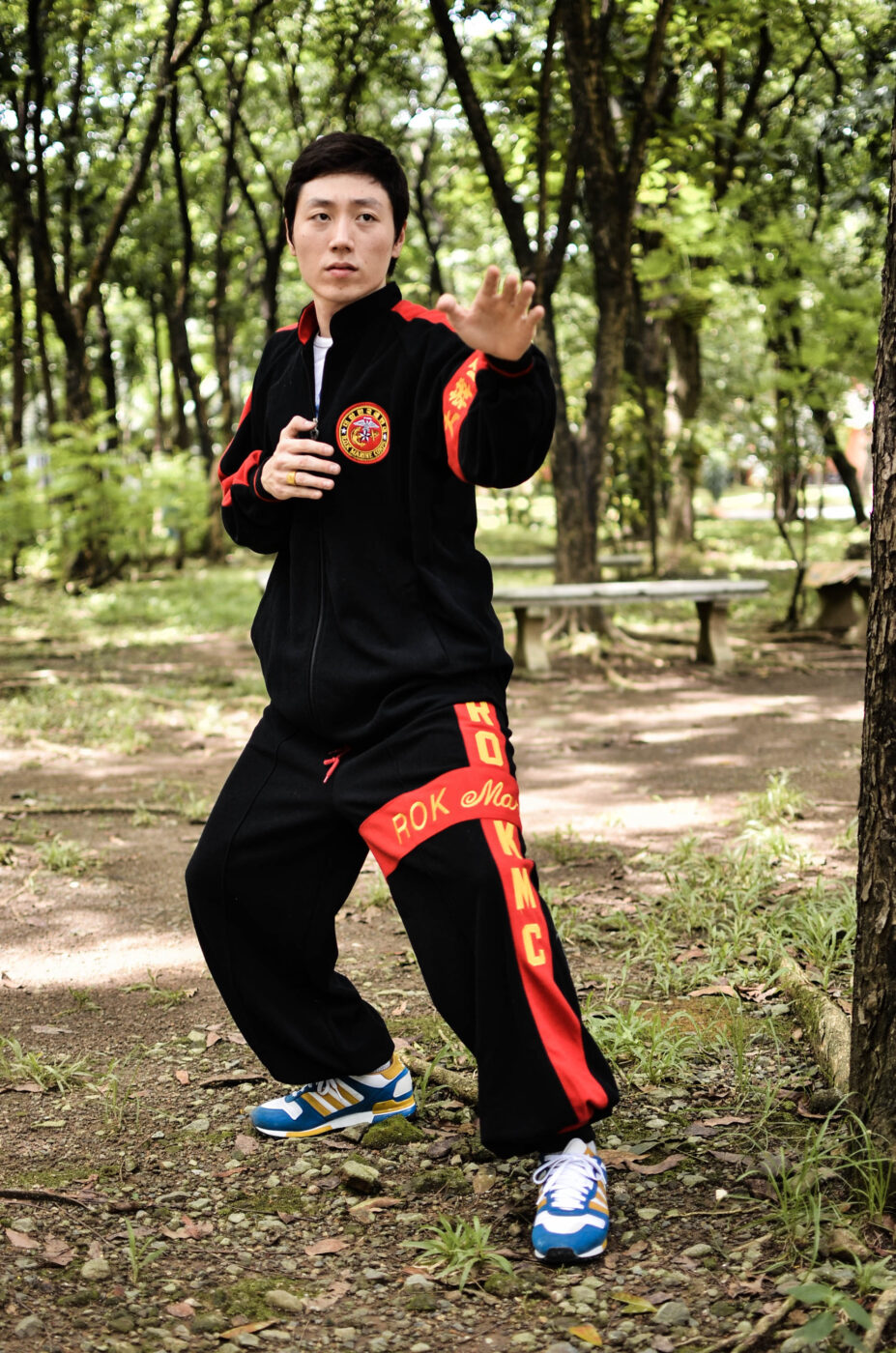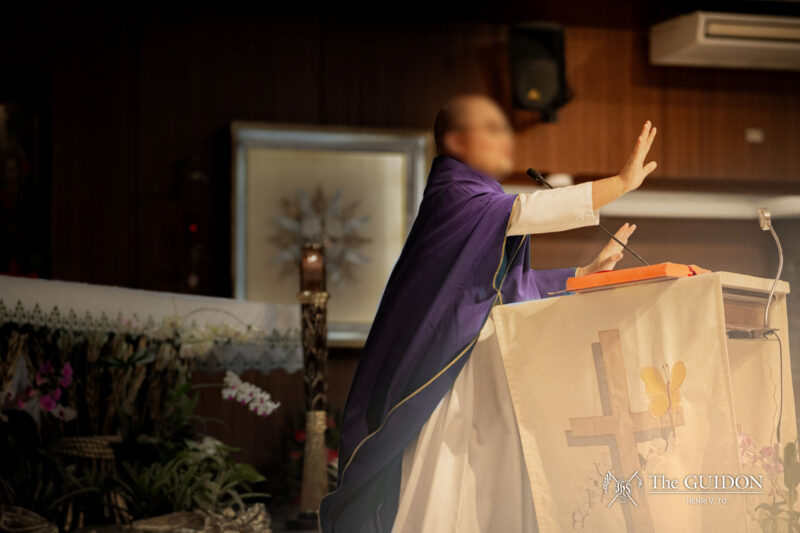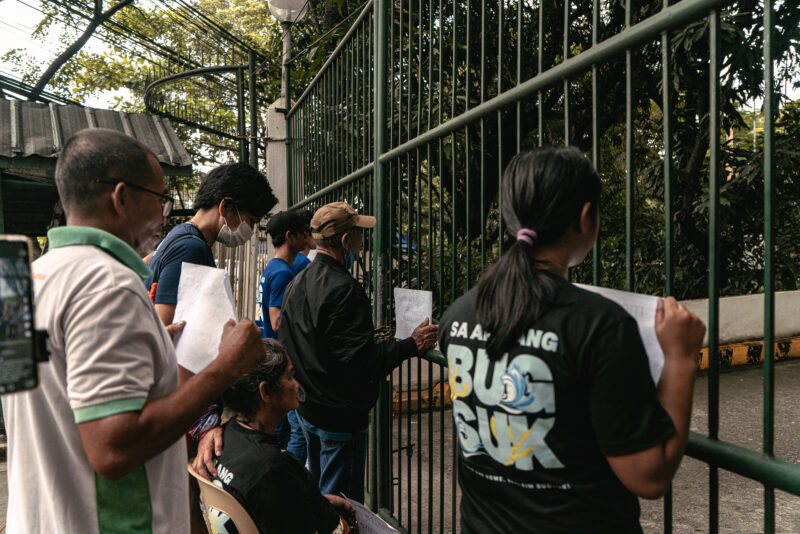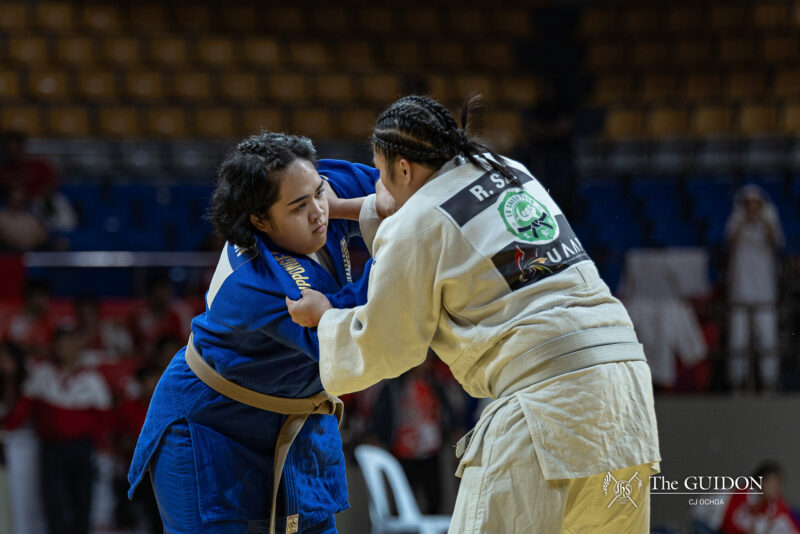Perhaps the closest that most of today’s students get to marching into war is the long, anxious tread to a make-or-break exam. For other people, however, war is a much more literal reality.
Some students have survived dangerous times in the military, particularly those who hail from countries such as South Korea, where military conscription is a cultural norm.
One such student is interdisciplinary studies junior Sang Hoon Shin, known to most students by his English name, David. On campus, he comes across as a well-dressed man with a medium build and a calm disposition. It’s difficult to imagine that Shin began his rigorous marine training in South Korea at the age of 20.
After finishing his military duty and three years in the Ateneo, the now-27-year-old Shin reveals a side of being in the army that few ever get to glimpse.
Into the trenches
Shin came from a part of the world that is increasingly threatened by the possibility of war from external forces. When the tension between North and South Korea became more and more volatile, Shin decided to answer his country’s call to military service in 2006.
Although military service is mandatory in South Korea, some are able to avoid it because of wealth or poor health. However, Shin was personally drawn to the armed forces by his desire to undergo its transformative rigors. “[I like] the challenge of a difficult environment,” he says.
Shin had very little apprehensions about joining the military. Though his father resisted, understandably worried for his son’s safety, Shin was unwavering in his desire to serve flag and country. His father eventually caved in.
He now had his father’s blessing, but getting into the marines proved another challenge. Aside from needing an interview with the government and satisfactory grades, Shin also had to undergo a battery of physically taxing tests.
Once he was accepted, Shin found that the military atmosphere is cutthroat in more ways than one. The first time he had to skydive, he was petrified—and rightly so; it isn’t unheard of for skydiving training to result in some unfortunate soldiers breaking their legs upon landing.
Standing at the door of the plane, he was immobilized with fear. Luckily, a higher-ranking senior soldier was around to help him: “He kicked me out.”
Skydiving training was important to Shin’s troop. Their route involved a 40,000-foot drop from the air, after which they had to swim the last kilometer to the North Korean shore to avoid detection.
Those who are conscripted into the military service don’t expect it to be easy. But as most recruits discover, the military experience feels much more real once they’re in the thick of it.
Because of how deep they had to go into enemy territory, Shin admits, “The survival probability is very low for my corps.” His troop was tasked with attacking from the topmost point of North Korea while other troops fought from the borderline facing South Korea.
However, Shin has long accepted that fact that he must kill or be killed: Korean marines are trained to eliminate their enemies not only with guns but also with their fists. And because death is a looming reality for Shin and his peers, soldiers are taught to perform post-mortem procedures at any time to ensure identification of the deceased.
Young blood
The gory details aside, there is another side of military culture that few recruits tell their parents about. Shin reveals that in the predominantly male South Korean army, many had to put up with intense sexual and emotional abuse.
“Sometimes, when I was taking a shower, my senior soldier would approach me and lick my nipples,” recounts Shin. “Some really bad senior soldiers have their junior soldiers masturbate in front of [them],” he adds.
Shin also had his fair share of physical assault from higher-ranking officers. “Almost every day I got hit by my senior soldier, especially here, [where] I don’t bruise,” says Shin, pointing to the back of his neck. Though the occurrence of abuse is common knowledge within the military, it still has to be discreet and easy to hide.
It’s also not unheard of for senior soldiers to make their subordinates ingest live insects and frogs while training outdoors. “[They say,] ‘You eat this live frog,’ [then they] open your mouth, they put it into your mouth,” Shin says.
Aside from their physical mistreatment, low-ranking marines aren’t even permitted to read letters that arrive from their families unless senior soldiers allow them to.
Marines must let nothing break them, even if those of higher ranks have the power to be unforgiving. Nonetheless, there have been a few cases of lower-ranking soldiers committing suicide because they could no longer take the harassment.
Military life is a grueling test of character. Though Shin was initially upset by these incidents, he had to learn not to let them get to him. Horrific as they were, the experiences also made soldiers like him toughen up. “It was a kind of mental training,” he notes.
At the home front
In spite of the hardship he endured, Shin does not regret his two-year tenure as a South Korean marine. “I’ve become more brave. Also, physically and mentally, I’ve become stronger than before,” he observes, referring to how he has been able to overcome the bouts of loneliness that came out of being an only child.
Additionally, Shin’s military service gave him a more nationalistic perspective. “I think my country is more important than myself,” says Shin, “That’s why if there is any battle or war, I have to participate. Although I may die, I have to fight.”
Leslie Lopez, a lecturer from the Sociology and Anthropology Department believes that there is nothing surprising about the strong love for country that members of the military possess. “[Soldiers] are forced to become politicized because they are faced with very real socio-political problems. They live it. They develop a particular sense of nationalism,” she explains.
This nationalism can often be found in countries that require military conscription, where efforts to manage outside threats imply a heavy atmosphere for youth involvement.
But in the Philippines, where citizens are not required to undergo military service, the youth is not as motivated. Military culture is far from glamorized, to say the least. “Most [of the youth] think it’s about being ordered around all the time or they are scared about the rigors of military life,” says management-honors sophomore AJ Rojo, who initially planned to join the Philippine Military Academy (PMA).
In addition to this, parents may also be less willing to allow their children to sign up for duty. Park Palacios, a political science junior who was part of the Reserve Officers’ Training Corps, considered entering a military academy. However, his parents discouraged him from doing so.
He explains, “[The military] has a reputation of being tough on students, [what with] all the controversies on hazing. They kind of got scared of that.” In August 2011, the Commission on Human Rights received a video of a PMA cadet being beaten up by three others. Another instance involves a Philippine Merchant Marine Academy cadet who died, allegedly due to hazing.
Fighting the good fight
Currently, Shin appears to be just fine where he is, making the most out of his stay in the Philippines, his Atenean education and his part-time job as a math teacher.
But although his two years of mandatory military service are over, Shin isn’t in the clear yet. “I still have to go back to Korea if there’s war. I cannot study here. I have to participate in the war.” If he doesn’t, Shin must face the death penalty.
“Nobody likes war,” says Shin, including himself. But when the time comes, he’ll be ready to leave his life here, take up his arms and fight.







